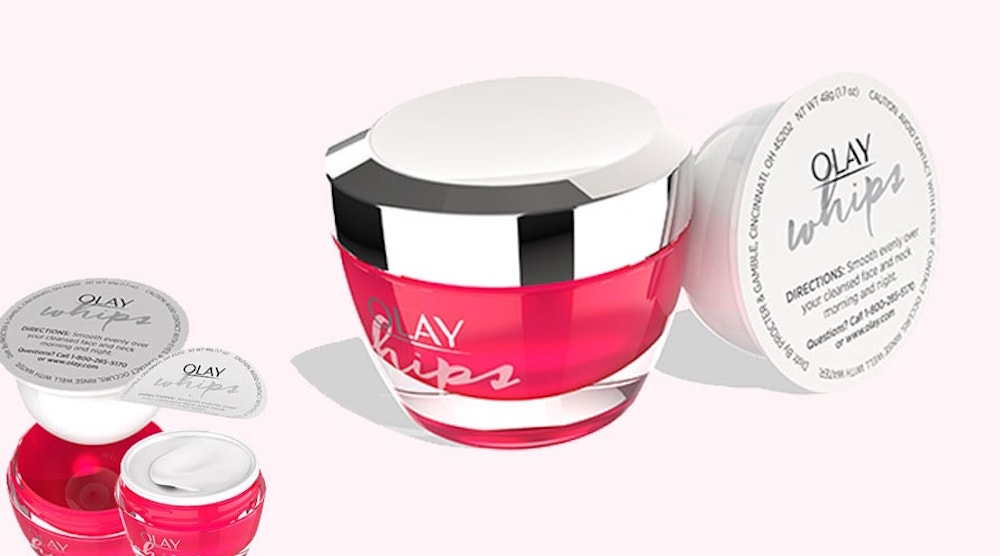Olay, the 67-year-old American skincare brand, will launch a major refillable packaging trial in the UK and US later this year.
During the three month trial from October to December, the P&G brand will sell its Olay Regenerist Whip moisturiser with a refill pod that can be placed in the jar when its emptied.
The package will be sold and shipped in a container made of 100 percent recycled paper and will not contain an outer carton in order to reduce the use of paperboard. In addition, the pods themselves will be made from recyclable polypropylene.
If consumers respond well to the offer and Olay “moves a significant portion” (around 5 million) Olay Regenerist moisturiser jars to refillable pods then that would save over 1 million pounds (450,000kg) of plastic”.
Announcing the trial at the Sustainable Brands Conference in Detroit, P&G said it could lead “to a new way of shopping for skincare that could dramatically reduce the amount of plastic used in the beauty category”.
P&G’s associate director of communications for global skin and personal care brands, Anitra Marsh, said the refillable packaging “is the first step” towards P&G’s ultimate goal “to find and adopt many more sustainable packaging solutions”.
“This is the first ever refillable package in mass retail skin care, and when adopted broadly, it could dramatically reduce plastic in the beauty category,” she said.
“Therefore it’s really important for us to get it right because only then can we bring this concept to market at scale.”
She said Olay will test the refillable Olay Regenerist Whip moisturiser on Olay.com in the US and UK and select retailers online, then evaluate the learnings to inform future packaging.
“Olay hopes to learn more about the way consumers interact with refillable products in beauty, e.g., whether or not consumers like the idea of refillable skincare products and whether or not Olay’s design is intuitive.”
She said P&G decided to test its refillable pods on Olay Regenerist Whip as it was Olay’s No. 1 product in 2018, and because it’s aimed towards late 20-something and 30-something consumers.
“We know that millennial women are especially concerned about the environment,’ she said. “We wanted to empower them to make a choice as individuals that could be better for the environment.”
For more news and updates, subscribe to our weekly newsletter.

